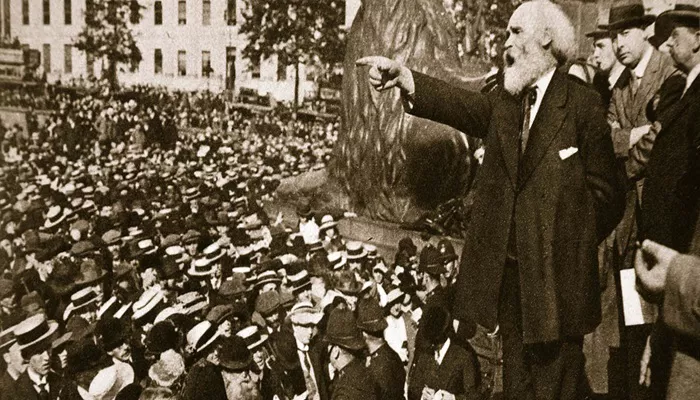January 13 has witnessed several significant events throughout British history, spanning political developments, social movements, and cultural milestones. This article will delve into some of the most notable occurrences on this date, providing detailed accounts of each event.
What Happened on January 13 in British History?
1. Foundation of the Independent Labour Party (1893)
On January 13, 1893, the Independent Labour Party (ILP) was founded in Britain. This political party emerged from a growing desire among workers for representation and better working conditions. The founding meeting took place in Manchester, where James Keir Hardie was appointed as its first leader. Hardie was a prominent figure in the labour movement and played a crucial role in advocating for workers’ rights.The ILP aimed to unite various socialist groups under a single banner to better represent the interests of the working class in Parliament. The party’s formation marked a pivotal moment in British political history as it laid the groundwork for the eventual establishment of the Labour Party in 1900. The ILP focused on issues such as social justice, workers’ rights, and economic reform, which resonated with many disillusioned by the existing political landscape dominated by the Liberal and Conservative parties.
2. John Armstrong Becomes Secretary of War (1813)
Another significant event occurred on January 13, 1813, when John Armstrong replaced William Eustis as the Secretary of War in the United States during the War of 1812. Although this event primarily pertains to American history, it had implications for British military strategy at the time.The War of 1812 was characterized by various military confrontations between the United States and Great Britain, largely stemming from issues related to trade restrictions and impressment of American sailors. Armstrong’s appointment came at a critical juncture when American forces were struggling against British military might. His tenure would involve strategic decisions that would ultimately affect British operations in North America.
3. The Birth of a New Political Movement (1893)
In addition to the founding of the Independent Labour Party, January 13, 1893, also marked a broader awakening within British society regarding labor rights and representation. This period saw an increasing number of working-class individuals becoming politically active and demanding their rights.The late 19th century was a time of significant social change in Britain. Industrialization had transformed cities and created a new working class that faced harsh conditions. The establishment of organizations like the ILP was part of a larger trend towards political activism among workers, leading to eventual reforms in labor laws and social policies.
Conclusion
January 13 has been a date marked by various pivotal events in British history that have shaped political landscapes and social movements. From the establishment of labor representation through the Independent Labour Party to significant appointments during wartime, these events highlight both national and international contexts that influenced Britain’s trajectory over time.As we reflect on these historical moments, it is essential to recognize their lasting impacts on contemporary society and politics. The struggles for representation and rights that began on dates like January 13 continue to resonate today as movements for social justice evolve globally.
Related Topics:

